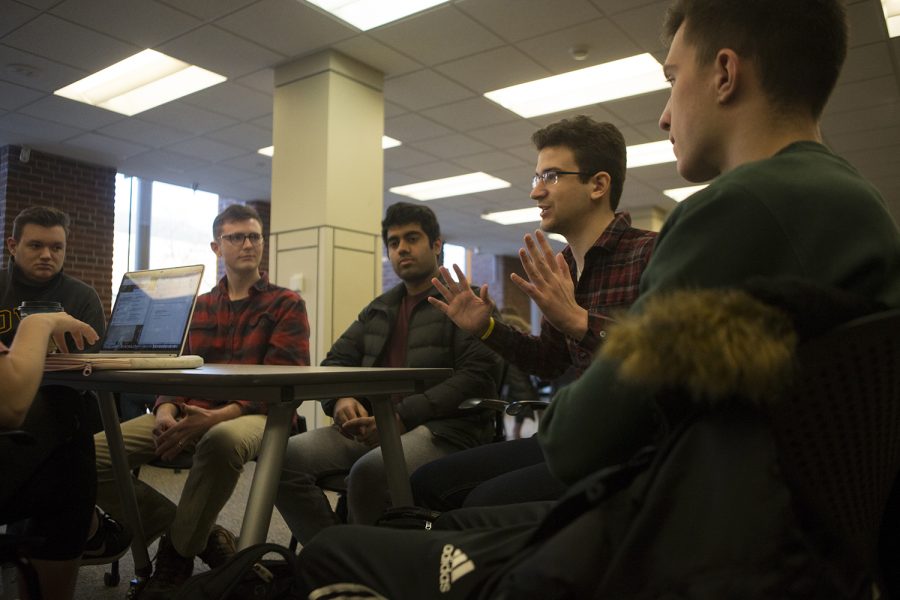Opinion: Esports are sports, and the UI should support them
Esports players — including collegiate players — put in just as much effort as any other athlete, and deserve recognition.
Dylan Montigney talks about Japan’s esports scene at an interview in the Iowa Memorial Union on Monday, December 10, 2018.
November 17, 2019
The term “esports” is a misnomer for many. How could hours sitting at a computer be athletic? But esports are just as deserving of the title of “sport” as any other activity widely recognized as such.
Just this year, our neighbors at Iowa State University budgeted $662,000 to support their esports teams. With the rising popularity of this activity, the University of Iowa should commit more to supporting the Esports at Iowa student organization.
Regardless of traditional athleticism, esports are incredibly demanding. Professionals will practice anywhere from six to 12 hours a day. These aren’t just laid back gaming sessions either — every minute of these practices, the pros are thinking about different strategies and skills they can use.
Competitive gaming is physically intensive as well. Studies from the German Sports University show that players undergo high levels of strain during matches. Most notably, their hand-eye coordination is just as — if not more — demanding as table tennis and their heartbeat can get higher than marathon runners.
The practice never stops either. Professionals don’t take time off. Every single day is dedicated to training and improving. They still play because they can’t afford to get behind.
It’s not just players in the scene. For each team, there are game coaches, nutritionists, physical coaches, and others all doing their best to ensure that their players are at the top of their game. It’s no different from any other sports team.
Even if physical athleticism alone isn’t enough to make it a “sport,” it seems authorities on the subject agree.
ESPN has sponsored and covered esports for some time now. In May, ESPN held the first-ever ESPN Collegiate Esports Championship with a variety of games making an appearance, including Hearthstone, Starcraft II, Street Fighter, and others.
The notion of what constitutes a ‘sport’ is simply society bringing it into the fold of that designation.
If ESPN, one of the biggest sports monopolies in the business, is showing competitive gaming on its services, there is no clearer indication it’s considered a sport by higher-ups.
It’s not as though esports are just some random niche; they’re worth billions of dollars, and will only get bigger from here. It may sound strange, but there may very well be a time when Team Solo Mid is worth as much as the Green Bay Packers.
Beyond ESPN, there is now the Big Ten League of Legends Season, in which 14 schools compete, including the UI team.
Even the U.S. government in some capacity recognizes the legitimacy of esports as sports. In order to compete in tournaments hosted in the U.S., many players from overseas must be here in person.
If they weren’t competing in sports events, how could they warrant the same treatment that other professional athletes experience?
Sports have grown out informal obscurity before — boxing was once an illegal activity broken up by the police and is now worth billions of dollars.
The notion of what constitutes a “sport” is simply society bringing it into the fold of that designation.
No one knows exactly how large esports will become in the next few years, but it will undoubtedly grow. With its surging popularity, the UI should not take a backseat on this new frontier. Imagine what all other esports teams could accomplish if instead of just relying on their own devices, they had the UI’s full backing.
If an activity requires teams to train for months on end, perform at the highest skill level, and is viewed by millions of people — what else can it be called besides a sport?
Columns reflect the opinions of the authors and are not necessarily those of the Editorial Board, The Daily Iowan, or other organizations in which the author may be involved.


















